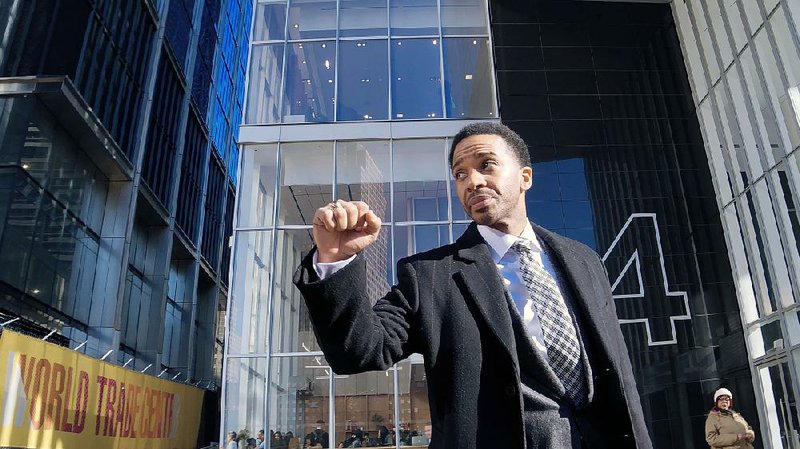Those of you looking for a movie that offers you something to chew over would be well served checking out the new-ish Netflix original from director Steven Soderbergh and writer Tarell Alvin Mc-Craney. High Flying Bird is a movie so jam-packed with notions, it literally offers up a homework assignment for those intrigued by what they’ve seen so far.
The movie follows sports agent Ray Burke (Andre Holland) as he tries to end a National Basketball Association lockout that risks impoverishing his clients, particularly Erick Scott (Melvin Gregg). Along the way, Ray’s maneuvering and his conversations with wise old coach Spence (Bill Duke) spur him to consider tearing down the system itself and building something more equitable in its place. It’s a spark he tries to impart to Erick at the end of the movie, giving him a copy of Harry Edwards’ The Revolt of the Black Athlete, which Spence has dubbed “the bible.”
It’s that notion that forms the heart of Edwards’ book, which was re-released in a 50th-anniversary edition in 2017. Edwards was on the radical edge of the civil rights movement, pushing black student-athletes and Olympians to fight for equality by threatening boycotts and medal-stand protests.
“The revolt of the black athlete arises also from his new awareness of his responsibilities in an increasingly more desperate, violent, and unstable America,” Edwards wrote. One of the “imperatives” Edwards and his fellows sought was the creation of “a threatened ‘establishment interest’ that makes the changes demanded more reasonable and appealing to the establishment in terms of cost-reward outcomes than maintaining the status quo.”
That last bit in particular jumped out after watching High Flying Bird. As I said, the movie is stuffed with tangential, almost tossed-off asides — the difficulties faced by gay athletes in the world of sports; the fact that cellphones and their camera-based apps aren’t optimized for black skin; the importance of financial literacy for newly minted millionaires — each of which could have sustained a whole movie. But the idea of creating credible threats to entrenched business interests in order to make change is the backbone of the film.
It’s this idea that drives Ray. Understanding that the owners can wait out the players until the lockout is over, absent some competing interest, he organizes an impromptu one-on-one game between Erick and a teammate at a charity event. Footage of their duel goes viral, as such footage does, inviting offers from the new players in the world of video locked out of the previous sports deals. Face-book wants streaming rights. Netflix wants to build a new live-programming apparatus around such match-ups. They could smash the whole system and build something new.
“It was raw. It was palpable and it was real. It was the beginning of change, change of this game that’s been played behind the game,” Ray says to Erick of their viral moment. “Money would go direct to you. … This makes you the decider.” It’s like boxing, but without the brain damage, they surmise. More importantly: It’s the game, sans the owners.
Whether or not such a scheme would ever really work for professional sports — I tend to think not, even in a sport as reliant on individual personalities as the NBA, given that the owners would still own the laundry most fans cheer for — is beside the point. Soderbergh, distributing a movie to tens of millions of homes simultaneously and shooting it with impeccable artistry on eminently affordable iPhone cameras, is showing the studios just how little he and other talented artists really need them.
As a reactionary, I’m sympathetic to the Steven Spiel-bergs of the world who view Netflix, rightly, as a potentially deadly threat to movie theaters. And there’s something vaguely amusing about Netflix, a massive, multibillion dollar-corporation, attempting to woke-wash itself by suggesting it’s just out here fighting for underrepresented voices to be heard.
But as a provocateur, I admire Netflix’s willingness to distribute and highlight a great filmmaker’s shot across the bow of the studio system. There are worse, less entertaining ways to threaten an “establishment interest.”
